By Shkëlqim ABAZI
Part five
SPAÇI
– The Grave of the Living –
Tirana, 2018
(My own and others’ memoirs)
Memorie.al / Now in my old age, I feel obliged to confess my truth, just as I lived it. To speak of the modest men, who never boasted of their deeds, and of the others whom the regime silenced and buried in unnamed graves? In no case do I take upon myself to usurp the monopoly of truth or to claim laurels for an event where I was only accidentally present, although I desperately tried to help my friends, who tactfully and kindly avoided me: “Brother, open your eyes… don’t get involved… you have only two months and a little left!” A worry that clung to me like an amulet from the morning of May 21, 22, and 23, 1974, and even followed me in the months that followed, until I was released. Nevertheless, everything I saw and heard during those three days, I would not want to take to my grave.
Continuation from the previous issue
“That gorge did not blow like everywhere else. The bends turned the current into a fierce northerly wind. The wind howled furiously from the torn hole in the orbit, as if from a gigantic maw. At an altitude of over three hundred meters, the snow turned into a glacier. During the rainy season, the world’s clouds gathered above the imprisoned sky and poured out unprecedented amounts of water; the thunder rumbled, the lightning cracked, nearly driving you mad, as torrents from the steep slopes rolled headlong, snatching up reddish stones and dirt and slamming them into the collector streambed with a roar.
Spring barely existed. Were it not for the few bushes that struggled to turn green at the end of April, it would not be noticeable at all. Summer was a dead calm. The heat took your breath away. The rays that struck the refractory tuff rock turned it into a furnace. When you saw the luxuriant leaves covered with dew drops at dawn, and hanging like dog ears in the evening, you would think that the mountain would be scorched the next day. The seasons replaced each other suddenly; one day you would darken under the sun, the next you would wake up on ice. This change had disintegrated the earth’s crust and the tuff-sandy formation into crumble, which contributed to the increase in mining disasters.
This also negatively influenced the pathological and psychological health of the inhabitants. After the first year, I came to understand why the Mirditors were nervous types and why the bushes remained thickets and even those few that surpassed that stage were reduced to miniature skeletons. The phenomena influenced the choleric character and the sudden mood swings of the police, as well as those few free people I knew.
Mirdita is covered with a variety of forests, which have long been exploited for timber and firewood, even for other cities. But not Spaç, whose slopes were red like bare onions. The little vegetation that sprouted here and there was low and dystrophic.
Some dwarf holly bushes and scattered, isolated plants, one here and one further on, across the desolate surface of the fenced slope, suggested that the terrain might be rich at its heart but meager on top. On the opposite face, the vegetation was slightly denser but just as low. Even a few skinny oak or fir trees looked like they were stuck on an empty void and crooked, like limbs of prehistoric animals.
The inhabitants who came and went on the path along the perimeter looked similar: dry and thin, but dynamic. The police or the free personnel – brigadiers, firemen, or engineer-technical staff-were generally visitors from distant villages or other cities; I only knew two locals in three years. My Mirditor friends confessed that the village constituted an undesirable community that did not meet the criteria to work with the convicts.
A Mirdita Tale
At work or in the barracks, we often debated the toponymy of Spaç. Everyone explained it according to their emotional state and whims. But everyone stubbornly defended their own version.
“S-paç, my friend!” insisted one who considered it the kingdom of Hades. “S-pak-ësh [You-don’t-have-little]!” the stubborn one who viewed it as the tenth circle of hell.
“S-plaç!”- Someone who pretended to be informed and called it the devil’s threshold.
“Mos-u-Spa-kësh!”- The madman who regarded the galleries as a dragon’s mouth.
But an old man from the area told me the legend that, as he insisted, descended from the depth of centuries: “In ancient times, God sent his trusted man to learn about the place, to mark it and to establish a church wherever he saw people. God’s messenger traversed Mirdita step by step, and planted a stake wherever he saw living creatures, he even planted one where he saw no man, but his eye caught the sight of a cluster of trees (sopa), just to make a sight of it.
He passed by here and saw only mountains and mountains, ravines and torrents, precipices and abysses with no speck of light and no green trees. He took a few houses that sheltered behind the trees for shepherds’ huts and moved on. Everywhere in Mirdita, they built a church, but here in this barren place, no. The mountains shook, the earth cracked, and even the rock started crying with tears of pity. Since then, blood flows here. Not quite blood, but red water, which weeping pains have turned into ore.
The people of this place rose up and complained to the Almighty. He summoned the emissary to hold him accountable for the unfulfilled work. ‘Forgive me, my Glorious One, when I circled all of Mirdita, I saw no man’s foot there, only pits, caves, holes, chasms, landslides, torrents; no sun and no moon shone upon this bedat! S’PAÇ [You-Don’t-Have] anything!’ the culprit defended himself. ‘I don’t know what you’ll do, but I want this matter fixed!’ the Most High ordered him. ‘Then, by my word, I will now turn it into a prison for Titans!’
He said it, and it was done! So, for ages, it was called ‘S’PAÇ,’ and lately, they have added ‘TITANS’ to it.”- the old man concluded. Those ruins invoked sadness. Perhaps I am emotionally influenced in this conclusion because they violently locked me in the prison of the “TITANS,” surrounded me with a triple fence of barbed wire, and enclosed me with soldiers armed to the teeth. Perhaps the landscape above would spoil the mood of the authentic Mirditors, but I left with these impressions. It was precisely this panorama that I found in September 1970, and which I would leave three years later, equally devastated by the gears of violence.
The only change that affected the daily lives of the seven hundred men crammed into the wilderness, as well as the hundreds who tied their existence to us- the active and mandatory service personnel, the workers who served their bread, or the villagers of the area – was the rotation around the sun, or nothing, nothing, and nothing at all…!
The tearing of the calendar pages changed the environment: ice and storm in winter, heat and dead calm in summer. With the change of seasons, the flora and fauna briefly came to life, but the months fled and life faded away. For mechanical reasons, the relief changed, while with the rolling of the years, history continued with aggressive ups and downs of the waves of class struggle.
In the circle of barbed wire, life floundered, misery increased, and with it, the number of wretches brought by the prison-van every week and every month. Except for some “trickster” who deliberately remained under the mountain rocks with subversive intentions, or someone who wandered near the wires and ended up under the scythe of the machine gun bursts, intentionally reducing the number of slaves. Nevertheless, the State Security, depending on political circumstances, met and exceeded the “plan” for arrests, multiplying the herd once again.
But no one was supposed to see. It was forbidden to feel the pulse of hell, or to penetrate the kingdom of Hades, to cross the threshold of the devil’s residence, and peer out from the dragon’s maw! No one should even think about tomorrow, because in the grave of the living, there was no tomorrow and no hope for change!
The monotony of the grave bit, poisoned, and suffocated the confined and the guards alike, with the pace of the heads of the bulla [perhaps referring to large stones/boulders or a local metaphor for misery] that challenge each other – one swallowed us in the inner camp, the other sucked us into the gallery.
… and everyone who passed by had to turn their head away, lock their mouth, wax their ears, close their eyes, and repeat the refrain: “S-P-A-Ç! S’PAÇ! S’PASHË!” even if they had accidentally seen!
Underground Worker
(Wagoner in the first brigade)
To hell with it, bad luck followed me at every prison door! In the cells of Shkodra, I took a beating because I spoke the truth. But there they subjected me to an undeserved catharsis; they mutilated one eye and one ear because I hoped for justice.
As soon as I set foot in Reps, the club came down on me. After a poisoning and hospitalization in the prison infirmary, they were supposed to assign me to the brigade of the crippled, but “a good start is half the work” remained a utopia; after two months, I ended up in a cell because I defended my dignity, and then, in the “homogenous brigade.”
In Burrel, after the idiotic “misunderstanding” with the ignorant policeman, instead of placing me in a cell with my friends, they sheltered me in a punishment cell with the rats! In Spaç, the sadist Preng Rrapi, vented his social rage without even tripping over my feet and peeled the skin off my back. “Now, God knows how my luck will turn out?”
My bad luck didn’t leave me, and my reputation spread. Word of mouth reached my friend Riza Kamenica, who, for a joke, would compare me to the tersi i Pojanit. One of the rare days off, we had gathered in the private kitchen; some were cooking, some roasting coffee, and some heating water to wash clothes or take a bath.
At the height of the conversation, Zakja appeared, placed his pan on the stove where Fevri Çerri from Progri and I were cooking, and stung: “Oh, Fevro jani, you’ve found quite the man for conversation!” – “What’s wrong with him, Zake?” Fevriu replied. – “He’s the bad luck charm of Pojani, may your mind not be closed to it!” and he started cackling. – “Zake, the boy is a good omen and…!” Fevriu wanted to add something else. But Zakja interrupted him, guffawing:
“Why, did I say he was bad?” – “No, but he’s a bit like the bad luck charm of Pojani; he starts as a boy and turns out to be a goat!” he turned to me. -“Boy, I’ve eaten bread in your house and parted as friends, for the Lady! By God, your father is a man of wit, and your mother is a lady, but where did you get your looks from, man? You follow me like a migrating bird; even I, who gets a little from these quirks, can’t shake you!”
Around fifty-seven, Zakja and a group of sawyers cut the timber for the third house, after the first two were burned and confiscated by the communists. At that time I was a minor, but I clearly remember the jokester Zake. When I ran into him thirteen years later in Spaç, I recognized him immediately, although time had taken its toll. The early Zakja had now turned into a politician, but his character and temperament had remained the same: talk and laugh, and laugh to the world, summer and beyond summer. When I introduced myself, he presented me to his circle and bragged about his old friendship with my family:
“By that Allah, if I lie to you, we went for some timber and sawed the entire neighborhood, and we spent a blessed year!” I had heard a host of jokes about the bad luck charm of Pojani, an adventurer variant of Nastradin from our regions, but when I heard Zake’s banter, I teased him in return. – “Zake, why did you call me bad luck and compare me to the one from Pojani?” I nudged him one day. That’s all he wanted, to let loose the reins of his imagination:
“You are bad luck, man! As soon as your verse was born, the famine broke out! An unprecedented cold struck us for about two years; the snow went two meters deep, the trees and crops dried up, our livestock died, and we were left with only hides on the beams. Then, in the summer, a cloud of locusts occupied the sky, and they devoured the little bit that had survived the winter. Meanwhile, communism sat cross-legged with Party and Youth secretaries, and what the locusts left, they swallowed, and the people became like targets (tezgene), may God forbid our eyes ever see it again!”
“What does this have to do with me honored Riza Kamenica? I didn’t bring the famine, nor the locusts, nor the secretaries and instructors, because I was an infant and hadn’t even learned to speak yet. You men with the mustaches, ear to ear, are responsible!” I cut off his momentum and pointed my finger.
“What did you do to the poor fellow; this is what this Yazid wanted!” Sami Dangëllia sided with me and turned to him: -“Riza, the boy is right, when the gun should have been turned on communism, you and your friends were messing around with Nevzatka, and now this boy, who wasn’t even born then, is guilty?”
-“Sami jani, the children of this generation were born like a black cat, man! Have you seen, when a scrawny cat crosses your path, either you change your path and turn back, or disaster finds you! But we didn’t listen and rushed after the berihasë [blessing/luck], and it turned out like this, as you see!” Zakja defended himself and shook his finger at me: “You are the bad luck charm of Pojani! Look, comrades, he starts for good, and it turns out bad and hun [a local expression for ‘nothing’ or ‘failure’]; he tells the truth, and it turns out bad, hun again; without trying to avoid mischief, hun again! Even when he defends others, hun! Hun over there and hun over here, hun sideways and hun on this side, he starts with a hu, and tears with a hu! Does it take more than that to be bad luck?”
– “Alright, Riza Bey, let’s assume the beating has followed me, but you others, have you been so lucky to have escaped it?” I alluded to the beating he had taken from his friend from youth, Nevzat Haznedari.
– “I didn’t say that, man! But you have curses, like the bad luck charm of Pojani, who when the village was expecting sun, he saw rain; when the world was taking bags for the harvest, he called for fire; when the neighborhood grabbed the tambourine and started the party, he brought the wailing, etc.! We were also beaten in the investigation, so much so that they broke our backs, but over here…” he ran his lumberjack’s palm over his side, as if to cut off the edges of the cart.
– “Come on; tell us a little about that hun you took, sir!” I nudged him again.
– “What do you want to hear, why are those stories worth telling?!”
– “I know they are not pleasant, but you accused me of being bad luck…” I retorted with a jest.
-“Man, do you really want to hear them?!” and he added without catching his breath: – “Well, listen then, since you want to fill your head with violence, because you’re already full of books!” He stretched out and his face became serious, so much so that no one had ever seen him with that veil of seriousness that instantly settled upon him.
“Have you seen how we earned the mouthful of our children?” Zakja began with a rhetorical question. -“Get up, saw and axe, fill the bag with bread and curd cheese, throw some rags on your back, and wander like migrant workers, village to village and forest to forest. Somewhere we cut timber, elsewhere we trimmed wood, securing that little bit of provisions for the children, because back in our area, winter is a long affair, you make your expenses in the summer, you make them, the frost and snow catch you, you wash your hands of this false hope!
We are uneducated, but we did well to learn a trade, while others remained with a naxhake [small hoe/tool] on their shoulder, behind the donkey’s tail, loading wood and descending to the city; today you sell it, tomorrow you don’t, because the people are impoverished, and at the end of the day, you don’t even earn your bread! That’s how we pushed through, because we couldn’t secure the crust in the village!” He paused, smoking as if he had emerged from a pool after a long dive. “But the government looked upon us crookedly, ‘you are an enemy village,’ they said, because the elders had sided with ‘Balli’ [Balli Kombëtar – a non-communist resistance movement] and they remembered and harassed us, sending spies among us.
Lumberjacks are lumberjacks; one day here, a week later there, we spent the night wherever it found us, in a house if we found one, in a sheepfold if there was one nearby, but mostly under tents in the woods. Nightingales sang in the trees, and we would sing below; one would toss and the other would catch, we’d start in Korça, and end up in Thessaloniki [referring to the exchange of songs/verses].
But, man, this mouth of mine cannot stay chained, because it is used to barking and tilling fallow land after fallow land. A fart escaped me in my sleep, which the snitch carried to the bosses before the smell even faded. They froze and put the handcuffs on me, and sent me to the devil in Korça’s most beautiful hotel [a sarcastic term for the interrogation center/prison].
I was caught off guard there because I didn’t know what they were concocting, but I decided I would remain silent. So, my friend, I thought I wouldn’t mess up. A week in prison: ‘You cursed Enver, you betrayed the Party, you said this with so-and-so, you chattered that with so-and-so,’ and bam, the beating. I said no, and the beating again! I was turned into a target; my back became like a turtle shell.
One day I ran into my old friend, Nevzat Haznedari. ‘Thank goodness, I met him, I’ll avoid this trouble,’ (we had eaten a furnace of bread and drunk forty stomachs [referring to having grown up together]) and immediately, I called him by name. I didn’t believe he would recognize me, in the state I was in, but he rose up: ‘Where are you, man, Zake, what happened to you, man, Zake, who got you, man, Zake?!‘/Memorie.al




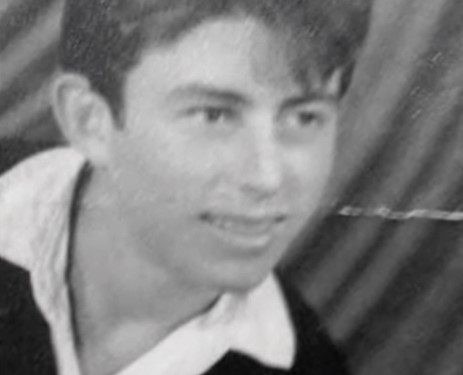
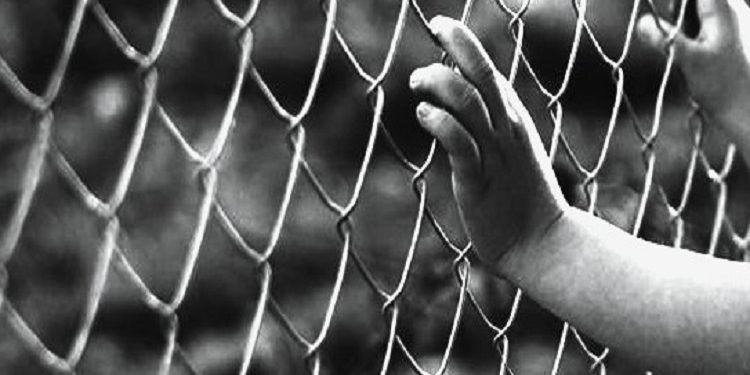
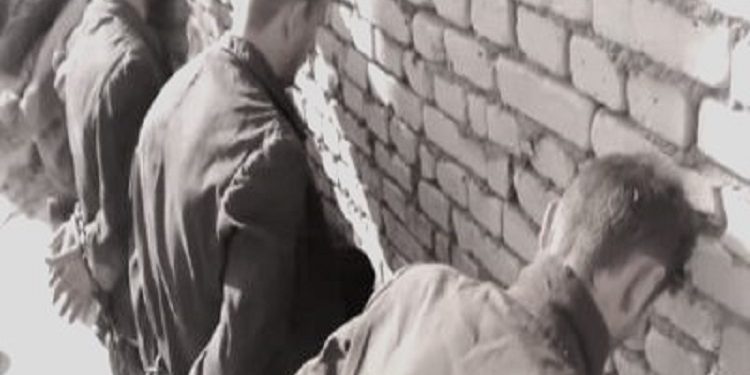

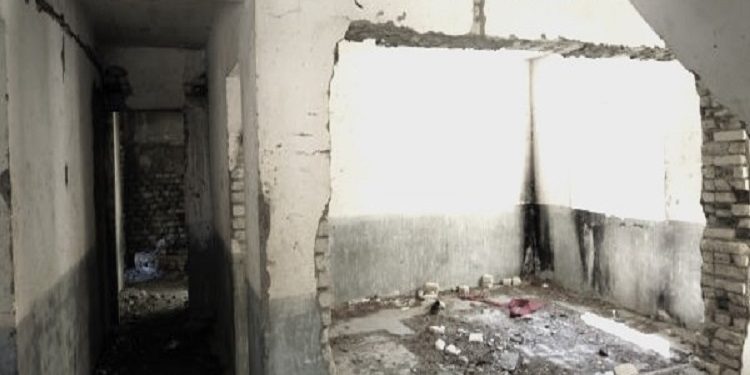
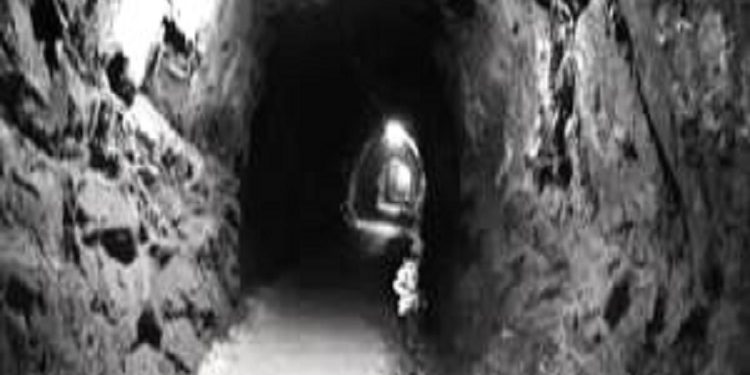



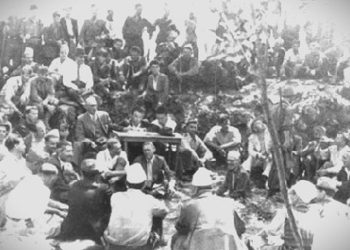
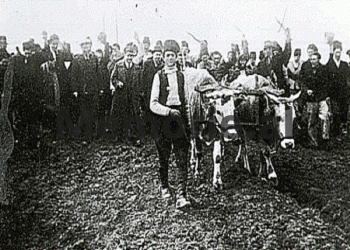
![“They have given her [the permission], but if possible, they should revoke it, as I believe it shouldn’t have been granted. I don’t know what she’s up to now…” / Enver Hoxha’s letter uncovered regarding a martyr’s mother seeking to visit Turkey.](https://memorie.al/wp-content/uploads/2026/01/Dok-1-350x250.jpg)
![“After Bardhi’s arrest, it was said that; in 1967, when Enver Hoxha would take part in the inauguration of the Rrogozhinë – Fier railway, he would blow up [the train]…” / The unknown story of the “terrorist” from Kavaja](https://memorie.al/wp-content/uploads/2024/05/admin-ajax-16-75x75.jpg)